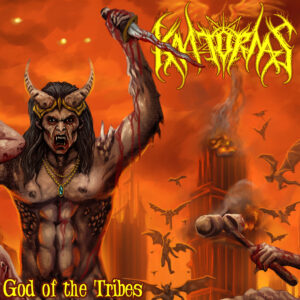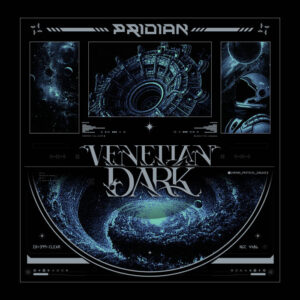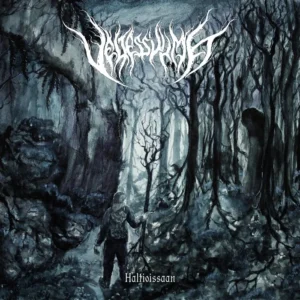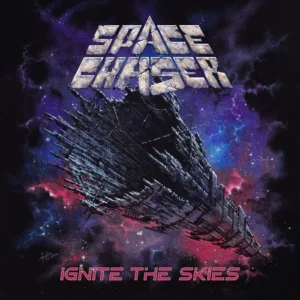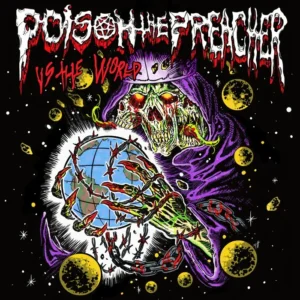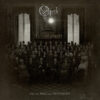Critic Center: My Metal Rant..."Americentrism" and its Impact on Post-Grunge Heavy Metal Development. / By Dave "That Metal Guy" Campbell
November 17, 2014
From Wikipedia, "Americentrism is the idea or perceived bias to judge other cultures and nations by American standards, or to center around the United States in news. It refers to the ethnocentric and xenophobic practice of viewing the world from an explicitly U.S. perspective, with an implied belief, either consciously or subconsciously, in the preeminence of U.S. culture."
https://en.wikipedia.org/wiki/Americentrism
Sadly, most Americans are not even aware of their ethnocentrism. Most of us cannot name more than a few countries in Africa, for example, or are aware that the national language of Brazil is not Spanish. When asked what kind of resources the outside world has, we grossly overestimate their access to such fundamental things as clean water, shelter and transportation, to name but a few. Instead, we bury our head into our I-phones, fire up our overly large gas guzzling SUVs, and head to the McDonalds drive through. What does this have to do with music, you ask? Unfortunately, the same things that apply to our cultural stupidity also apply to our lack of awareness of music that lies beyond our 'Merican borders. As far as we are concerned, music is made solely in America, and consumed solely by Americans. Let's circle back to the year 1991. I would submit to you that this was a pivotal year in music, especially within the genre of Heavy Metal. Here in America, Glam Metal was at its peak, and there was more teased out hair and spandex on MTV than at a Poison reunion concert. Thrash Metal had been built into its own empire by this time as well, and Death Metal took root in Florida a couple years prior. But what 90% of us were not aware of, is that Heavy Metal moved overseas in the early 1990's, particularly in the Nordic countries of Sweden, Norway and Finland. No one really knows when it started. Early influential bands like Venom and Celtic Frost are often cited as pre-cursors to the world of Black Metal, Scandinavian Death Metal and Extreme Metal in general.
In Sweden, it began with the forming of bands like Bathory, Carnage, and eventually, Entombed, Dismember, Opeth and Katatonia. In Norway, it was Mayhem, Immortal and Gorgoroth. In Finland, Amorphis was an early front runner in the Death Metal sound. Nor should I fail to mention the impact the Polish band Behemoth had in the development of this sound. Meanwhile, back in America, Heavy Metal was being squashed faster than the pumpkin harvest just before Halloween. Suddenly, this less-is-more sound someone called "Grunge" came around, and we Americans were all too happily spoon fed its music by radio and MTV. There were some notable Metal releases during this time, but they were few and far between. Megadeth was still putting out quality music, and Dream Theater had risen as more than a formidable band here. But it was primarily Pantera who was carrying the Metal banner loud and proud during this time. Everywhere you looked, dudes in flannels and boots, with questionable facial hair arrangements littered the television, and suddenly they all forgot how to play their instruments. Guitar solos were a thing of the past, mostly because they couldn't compose or play them. Grand, gritty arrangements were also gone, in favor of simple, whiny songs that had about as much substance as a Nickelback recording session. But our willingness as a country to accept whatever the media was pushing, combined with our inherent ethnocentrism, led to these mediocre bands becoming musical icons, and record sales through the roof.
I remember a parable about someone who sold their soul in exchange for superior talent in the field of art and painting. Many years later, as the contract came due for his soul, he was starving and penniless, nary a painting sold. The moral of this tale is that he should have wished for fame instead of talent. All too often, we mistake these concepts. It used to be that you had to possess real talent to land a record deal. Even the Glam bands who took abuse for their image over substance approach could sing and play their instruments very well. Once Glam rose and fell, it became evident that talent was not involved in the equation of fame. Here in America, Heavy Metal never really recovered from Grunge and Post-Grunge music. The decade of the 1990s has to be the worst decade for music in the history of music. But instead of looking elsewhere, or even being able to acknowledge the existence of music in other countries, we Americans continued to buy one shitty Metallica or Aerosmith record after another. What we missed out on during this time was something that was nothing short of monumental when it comes to musical creativity, excitement, and originality. Nordic bands in particular had created and re-created the Black and Death Metal scenes that budded here in the States a few years earlier. But something else was stirring as well. Just before the mid-way point in the decade of the 90's, when Metallica cut their hair and released "Load," and decided to go from a Metal band to a collection of politically correct rockers for a new generation of post-college flannel wearers, Sweden was creating Melodic Death Metal. Melo-Death. The Gothenburg sound. Call it what you want it, but how creative was it to combine elements of traditional Death Metal with the melodic sensibilities of the NWOBHM bands, Iron Maiden's approach in particular?
case for it being In Flames. Their album "The Jester Race" remains probably the strongest blueprint in the genre. The three bands that formed around this time and released albums first were In Flames, Dark Tranquility and At The Gates. Arch Enemy wasn't very far behind and Amorphis soon started using chunks of melody from their original Death sound. Up through and including the year 2000, the European and Nordic Metal scene in particular was overflowing with beauty, passion, brutality and creativity. There was Black Metal, Symphonic Metal, Melo-Death, Doom and Doom/Death, Prog and ProgDeath, Swedish Metalcore, and so many more wonderful bands. Coming into the fold shortly thereafter were bands like Dimmu Borgir, Insomnium, Omnium Gatherum, Mercenary, Soilwork, Children of Bodom, Scar Symmetry, Pagan's Mind, Circus Maximus, and Wintersun, to name but a few. Meanwhile in America, we were waiting for the reunion Van Halen album, talking about Korn, and debating whether or not we actually liked some Post-Grunge crud the media was still spoon feeding. In Finland, genius composer Jari Maenpaa was busy trying to find ways to fund the recording and releasing of some of the most epic music ever created for his band Wintersun. Living in a flat with hardly two nickels to rub together, self-funding whatever he could to get his music out with little help from his record label, and having to work a regular job just to make ends meet. When "Time I" hit the shelves, the mind-blowing compositions that ensued laid waste to just about anything and everything that had come before it in the world of Heavy Metal.
Yet, in America, anyone with an even decent voice, access to a producer, a firm grasp of sampling and auto-tuning, or riding the coat-tails of their far earlier careers when they actually made good music, could hold a record label and make tons of money. Some American bands sell Platinum every time they release an album, even know their creativity hit the skids many, many moons ago. How is it that most Americans completely missed these two decades of European and Nordic Metal bliss? This is what results when we have too much of our media being fed to us, and we allow complacency to set it, as we eat another 10pack of Chicken McNuggets and talk about the reunion album of any number of has-been acts. I implore my fellow Americans to put down the remote control, turn off the radio, put away the new Slayer album for a while, and explore the unbridled creativity of Metal that Scandinavia has been overflowing with. There is far too much good Metal out there to be worried about what kind of recycled garbage there is in on America.
Source:
More results...

